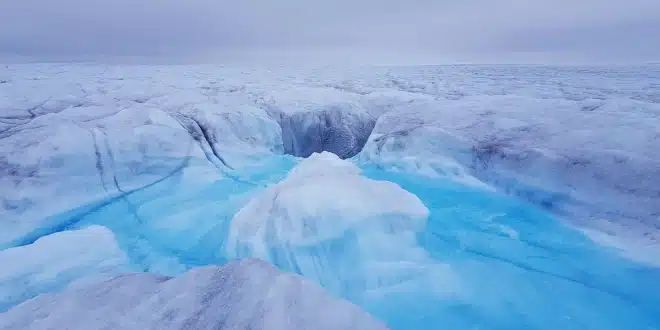A recent scientific assessment has raised alarms over the stability of the Greenland and Antarctic ice sheets, warning that even minimal increases in global temperatures could result in significant sea level rise. The study emphasizes that catastrophic changes may continue even if the world succeeds in limiting warming to the widely endorsed 1.5 degrees Celsius threshold.
The research draws on multiple data sources, including satellite observations, advanced climate modeling, geological records, and DNA evidence from marine species. This interdisciplinary approach allowed scientists to assess both current trends and long-term historical patterns, with a particular focus on how ice sheets have responded to past warming episodes.
Ice Sheet Melting Accelerating Despite Warming Targets
According to the study’s projections, the current global temperature increase—already at approximately 1.2 degrees Celsius compared to pre-industrial levels—is sufficient to trigger accelerated melting of the polar ice sheets. This could lead to sea level rises that reshape coastlines and displace hundreds of millions of people globally. The researchers also noted that based on current emissions trajectories, global temperatures could rise as high as 2.9 degrees Celsius by the end of the century.
The combined mass of ice stored in Greenland and Antarctica contains enough water to raise global sea levels by approximately 213 feet. While such an outcome would occur over an extended period, the rate of melting has significantly increased since the 1990s. Current estimates indicate an annual loss of around 370 billion tons of ice, with the pace of sea level rise now double what it was three decades ago.
The researchers stressed that even in the best-case climate scenarios, the melting process is unlikely to slow down meaningfully. Data collected from ice cores and seabed sediments indicate that past warming events triggered extensive and rapid ice sheet loss, supporting the concern that current warming trends are leading to similar outcomes.
Long-Term Implications and Mitigation Challenges
The study also outlined the long-term impacts of ongoing ice loss. Even modest increases in sea level would require substantial adaptations in coastal regions, including large-scale migration, economic disruption, and infrastructure overhauls. Many of the world’s most densely populated cities are located in low-lying coastal areas, making them particularly vulnerable.
Researchers behind the study emphasized that reducing fossil fuel consumption remains critical to slowing future warming. Despite growing awareness and climate pledges, global reliance on coal, oil, and natural gas remains substantial, particularly in industrialized nations. These ongoing emissions continue to undermine efforts to stabilize global temperatures.
While achieving the 1.5-degree goal would be a significant milestone, the study concluded that it would not be enough to halt sea level rise entirely. Instead, it would only limit the rate at which it occurs. As a result, scientists are urging policymakers to prepare for a future where sea level rise continues for centuries, even under the most ambitious climate targets.


